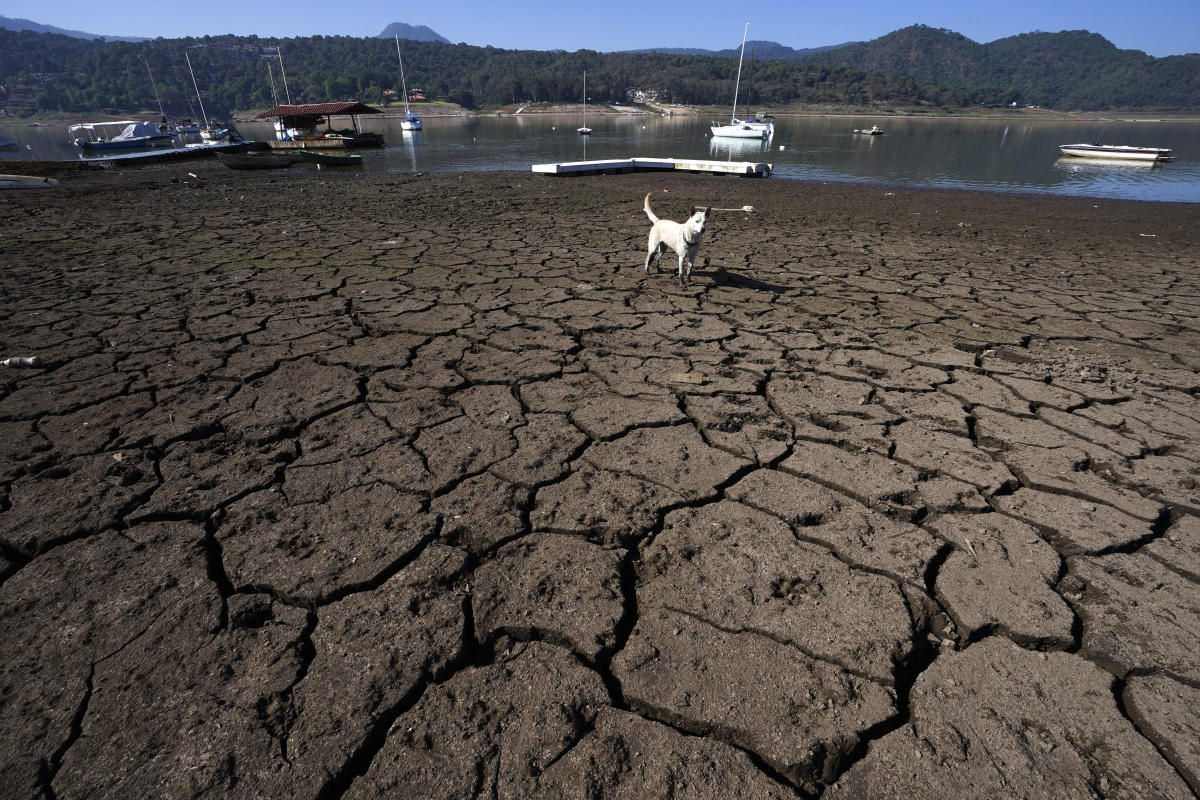Residents around the Valle de Bravo reservoir had protested about Mexico City drawing water from the lake, an area dotted with expensive homes about two hours west of the capital. The reservoir is now about three-quarters empty, and that has hurt tourism and real estate prices.
Citlalli Peraza, the regional official for the National Water Commission, said authorities have decided to stop taking water from Valle de Bravo. She said they decided instead to supply Mexico City from the El Bosque reservoir, which is relatively unpopulated and a little farther from the capital. The El Bosque reservoir is just a little over half full.
But authorities simultaneously got complaints from Mexico City residents that they were getting dirty or contaminated water. Inhabitants of one upscale Mexico City neighborhood staged a protest Tuesday, blocking traffic on the city’s main north-south avenue, complaining the water they were getting smelled of oil or gasoline.
City residents in other neighborhoods say that as the reservoir levels dropped, the water being delivered from them has become increasingly cloudy and bad-smelling.
Residents of Valle de Bravo complain their reservoir is being drained by Mexico City’s refusal to fix broken pipes that waste much of its water.
The water commission said that, so far this year, Mexico has received 29.6% less rain nationwide than in an average year.
Tanker trucks are increasingly seen delivering water in middle and upper-middle-class neighborhoods in Mexico City; many poorer neighborhoods in the capital have never had reliable water service.
The water shortage has caused fires to break out in some strange places.
Over the weekend, one of Mexico City’s two massive storm drains actually caught fire; officials said that waste gases had accumulated inside the underground conduit and ignited, causing flames to shoot out of ventilation shafts dozens of yards (meters) into the air.
Apparently, so little water has been moving through the drainage system that sewage has stagnated, allowing gases to accumulate.
In March, one of the capital’s rainwater catchment basins caught fire, scorching 75 acres (30 hectares) of dried up vegetation.
The El Cristo basin is one of a series of large holding ponds meant to hold excess water from storm drains. Because the city is located in a high mountain valley with no natural outlet, sudden rushes of rainwater tend to overwhelm the man-made drains; the catchment basins act as a buffer.
Normally, the basins are so green from previous rains that residents sometimes used them in the past as impromptu soccer fields or for grazing animals.
